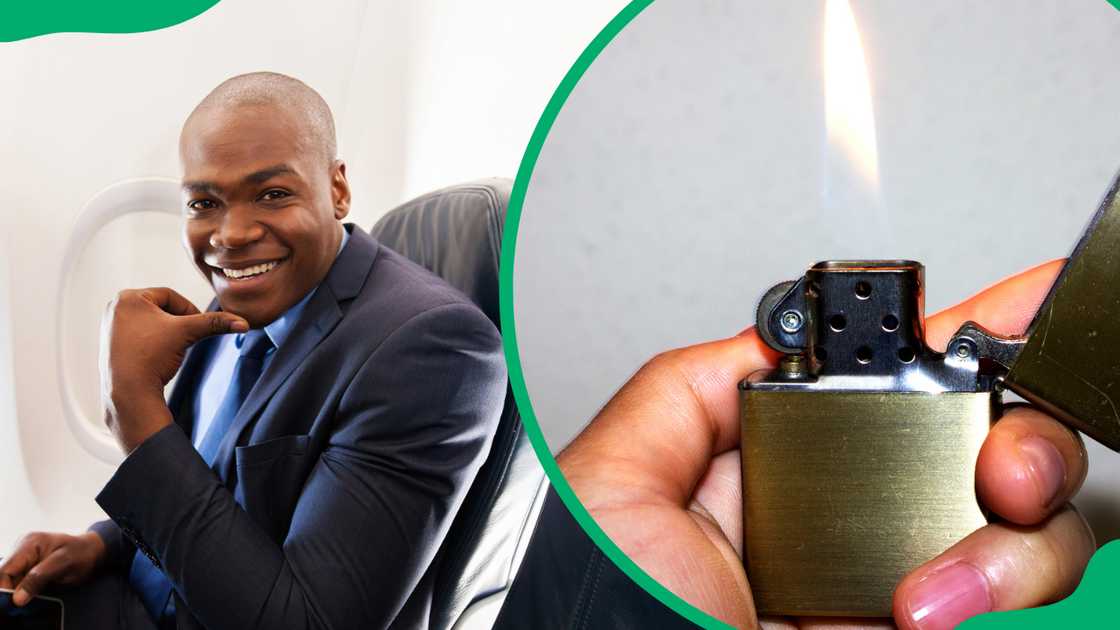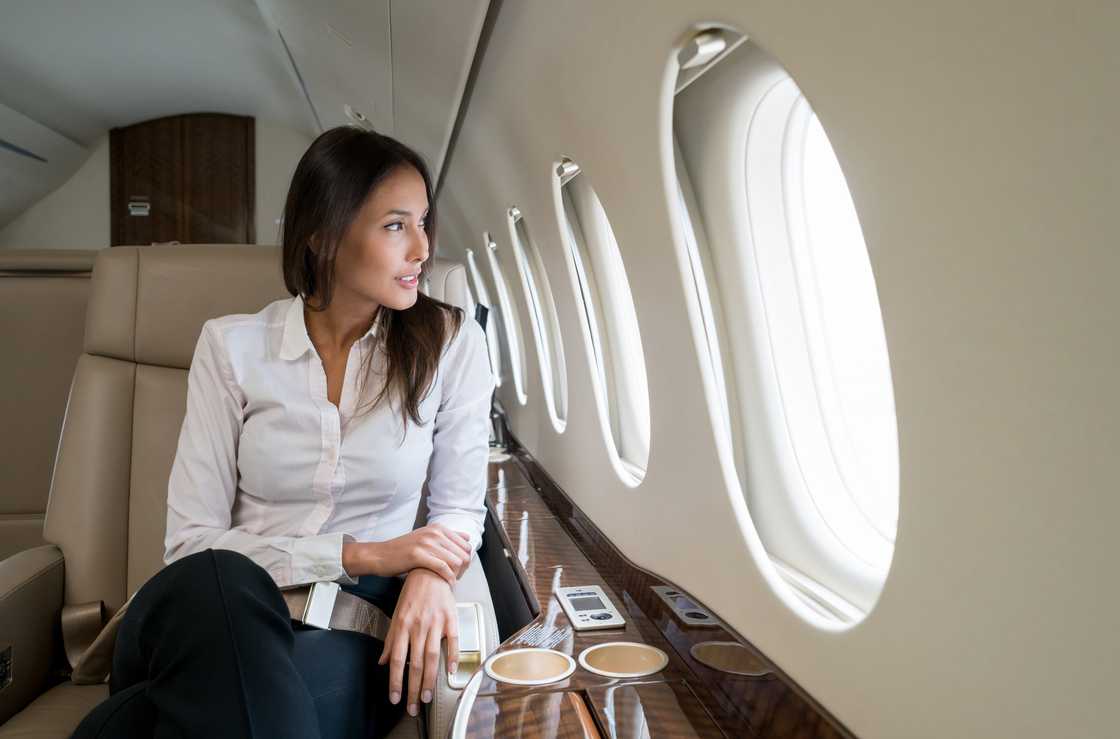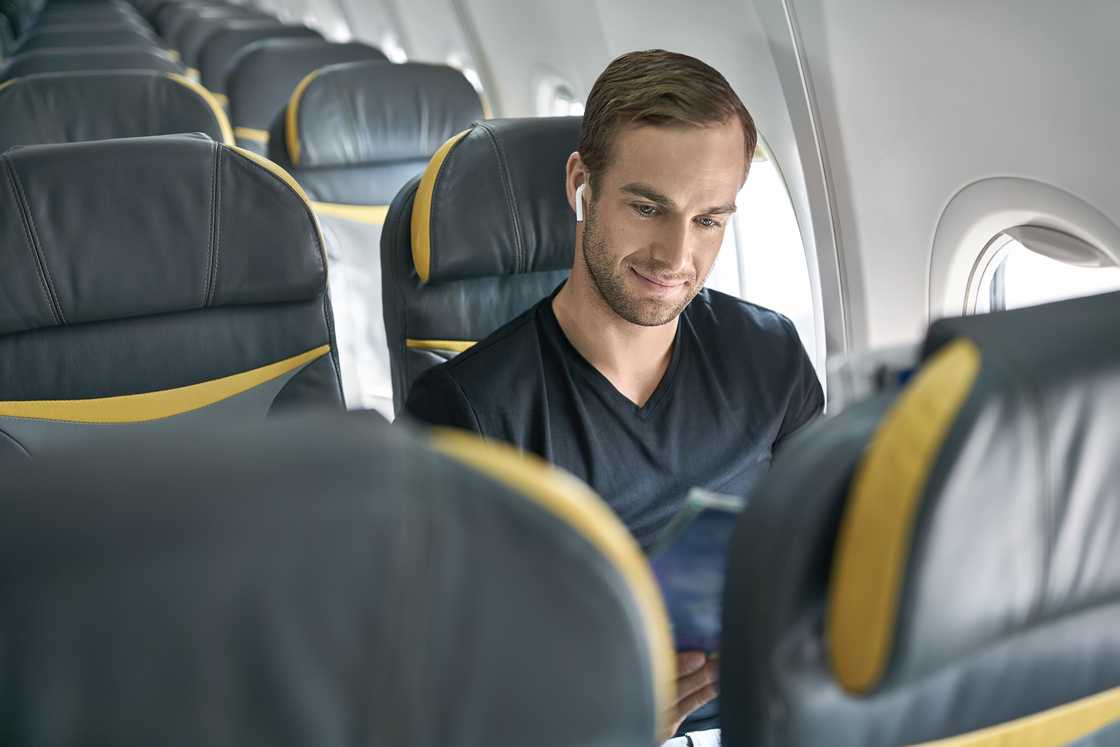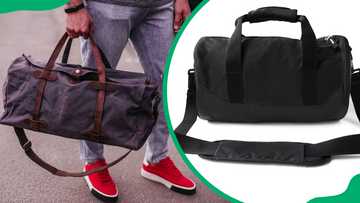Can you bring lighters on a plane? Essential information for travellers
The aeroplane is undoubtedly one of the most complex means of transport, and everything is designed to guarantee maximum safety. There are many interesting facts about travelling by plane, including items to bring. So, can you bring lighters on a plane?

Source: Getty Images
TABLE OF CONTENTS
Travelling by air can be complex, especially when figuring out what items are allowed on a plane. One of the most common questions travellers ask is: “Can you fly with a lighter?” Whether you are a smoker, carry a lighter for emergencies, or need one for recreational activities like camping, knowing the rules regarding lighters on planes is essential.
Can you bring lighters on a plane?
Lighters are allowed on planes with restrictions depending on the lighter type and how you intend to carry it. In an April 2023 interview with USA Today Travel, the TSA spokesperson noted:
Passengers can bring one disposable lighter in their carry-on baggage, but we advise that travellers check their airline's specific regulations to avoid confusion at security checkpoints.

Source: Getty Images
Lighters allowed on planes
According to the Transportation Security Administration (TSA), specific lighters are allowed on planes, but only in specific conditions. Below is a detailed list of rules about what lighters are permitted and how they must be packed.
- Disposable lighters: You can bring one disposable lighter in your carry-on luggage. Bic lighters are among the most common disposable lighters allowed on flights. However, these can only be packed in checked luggage if placed in a DOT-approved lighter case.
- Zippo lighters: Zippo lighters are generally allowed in carry-on luggage as long as they are empty. Travelling with a fuelled Zippo lighter on domestic or international airlines is considered hazardous. If you are unsure about its fuel status, it is best to empty it before packing.
- Torch lighters: Torch lighters are strictly prohibited on planes due to their intense flame and the potential for misuse. These lighters create a concentrated, powerful flame that poses a safety hazard in flight.
- Butane lighters: Like torch lighters, butane lighters are typically not allowed in carry-on or checked luggage. This includes any lighter that uses pressurised gas to create an intense flame.
Lighters in checked luggage
TSA regulations are quite strict regarding lighters in checked luggage. While you can pack lighters in checked baggage, they must be empty or placed in a TSA—and DOT-approved container designed to hold lighters safely.
A disposable lighter, such as a Bic lighter, can be packed in checked baggage if placed in an approved lighter case that prevents it from igniting. However, lighters in checked luggage will be confiscated without this particular container.
Best practices for flying with a lighter

Source: Getty Images
To ensure smooth travel with your lighter, here are some best practices you should follow:
- Know the rules: Before you pack your lighter, review the latest TSA guidelines or the regulations set by your airline. Policies can change, and it is better to be informed beforehand.
- Limit your lighters: Carry only one lighter in your carry-on luggage to avoid security complications. If you need more than one, consider shipping extras to your destination or buying them when you arrive.
- Use a TSA-approved lighter case: If you plan to pack a lighter in your checked baggage, invest in a TSA- and DOT-approved lighter case. This will allow you to safely pack your lighter without fear of it being confiscated.
- Empty your lighter: For certain types of lighters, such as Zippos, emptying the lighter before packing is the safest option. Once emptied, Zippo lighters can be packed in carry-on and checked luggage.
- Avoid prohibited lighters: If you own a torch lighter or a lighter that uses butane or pressurised gas, leave it at home. These lighters are not permitted, and bringing one to the airport could lead to delays or confiscation.
Frequently asked questions
You can bring lighters on a plane, but there are specific rules you should adhere to depending on the lighter type and where it is packed. Here is what more people should know:
- Can you bring a Bic lighter on a plane? According to Travel Pro, you can bring a Bic lighter on a plane, but only in your carry-on luggage. You may run into issues if you carry multiple Bic lighters, as aircraft only allow one lighter per person in carry-on luggage.
- Is a cigarette lighter allowed on a flight? A cigarette lighter is permitted on a flight, but only in specific circumstances. Most cigarette lighters, such as Bic lighters, are permissible in your carry-on luggage. However, these lighters must adhere to aircraft regulations and be packed for security clearance.
- What are some of the TSA-approved lighters? Bic lighters and Zippo lighters are some of the TSA-approved lighters. They can be used only when they are either empty or stored appropriately.
- Can you take a lighter in hand luggage? You can take a lighter in your hand luggage, but it must comply with TSA regulations. You can bring one disposable lighter or one book-style lighter in your carry-on baggage.
- Does TSA care about lighters? TSA cares about lighters because they pose a potential safety risk on aeroplanes. The agency’s primary concern is the risk of fire or explosion caused by improperly stored lighters.
- Where should you put your lighter when flying? The safest place to store your lighter is in your carry-on luggage. This ensures your lighter is easily accessible for security checks and minimises the risk of accidental ignition during the flight.
- Are electric lighters allowed on planes? Electric lighters, including plasma, arc, and e-lighters, are prohibited in carry-on or checked luggage due to safety concerns.
Can you bring a lighter on a plane? You can bring certain types of lighters on a plane, but there are restrictions. Disposable and Zippo lighters without fuel are allowed in checked bags, but lighters with fuel are prohibited. If you must pack a lighter in your checked luggage, ensure it is either empty or stored in a DOT-approved case. This will prevent any potential safety hazards and ensure compliance with TSA rules.
DISCLAIMER: This article is not sponsored by any third party. It is intended for general informational purposes only and does not address individual circumstances. It is not a substitute for professional advice or help and should not be relied on to make decisions. Any action you take based on the information presented in this article is strictly at your own risk and responsibility.
READ ALSO: Red-eye flight meaning: How to prepare, what to expect, pros and cons
Briefly.co.za published an article about the red-eye flight, an air trip that departs late at night and arrives at its destination early the following day. The term "red-eye flight" comes from the tired, red eyes that people often have due to the lack of sleep during these overnight flights.
These flights are common on domestic and international routes and are often used by business travellers who want to maximise their time at their destination. Discover how to prepare, what to expect, and the pros and cons.
Source: Briefly News





